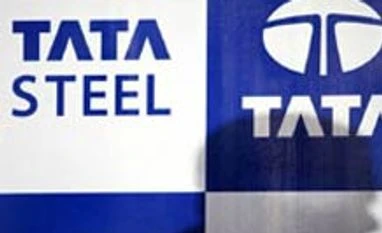Group firms, encouraged to expand globally under Ratan Tata’s guidance, are now looking within to unlock the value of non-core assets as cash flows are weak in a subdued market.
“It is quite natural for group companies to first look at their own non-core assets to generate cash before knocking on the doors of Tata Sons,” said a person familiar with the working of new group chairman Cyrus Mistry.
Tata Steel acquired Anglo-Dutch Corus for $12.1 billion (Rs 53,460 crore) in 2007, raising the company’s consolidated net debt to Rs 49,392 crore by March 2008 from Rs 14,037 crore a year ago. Besides, it increased capacity at the century-old Jamshedpur plant to 10 million tonnes (mt) by 2012-13 from four mt in 2006 and is building a six-mt unit at Kalinganagar in Odisha for Rs 38,500 crore. Consequently, Tata Steel’s consolidated net debt rose to Rs 59,788 crore in March.
The company has Rs 3,633 crore due in 2014, followed with a staggering Rs 28,769 crore in 2015, according to Bloomberg data. Tata Steel’s balance sheet for 2012-13 says it had free cash flow of Rs 1,200 crore against Rs 8,313 crore in the year-ago period.
In 2014-15, Tata Steel sold land in Mumbai’s suburb Borivali for Rs 1,150 crore and New Zealand arm Tata Steel International (Australasia) for Rs 142.5 crore. The company also sold its 50 per cent stake in Dhamra Port, a joint venture with Larsen & Toubro, at an enterprise value of Rs 5,500 crore. Analysts say these sales could help it cut debt by Rs 3,000-3,500 crore.
“Improved operating cash flows, no further step-up in capex and recent sale of assets will deleverage the balance sheet,” said Sanjay Jain, analyst with brokerage firm Motilal Oswal. “We expect the net debt-Ebitda (-earnings before interest, taxes, depreciation and amortisation) ratio to gradually decline to 3.4 by end of 2015-16,” he says.
The company also has a 5.4 per cent stake in Tata Motors and holds 4.37 per cent in Titan Company, respectively valued at Rs 7,585 crore and Rs 1,238 crore. These can be also divested to meet the repayment plans.
“Once the Neotel deal gets completed, the $470-million net debt of Neotel, earlier consolidated in Tata Communications’ books, will get transferred to Vodacom,” said Naveen Kulkarni, an analyst with foreign brokerage firm Phillip Capital. This will leave the company left with debt of $1.1 billion at the end of 2014-15.
“This is as a result of the $140-million equity value that Tata Communications will get from Vodacom for its 67 per cent stake in Neotel and an incremental deleveraging of $150 million on account of free cash generation in the core business and other non-core asset sales,” he added. This implies Tata Communications’ net debt-Ebitda ratio will fall to 2.2-2.3 from 3.4 now.
)